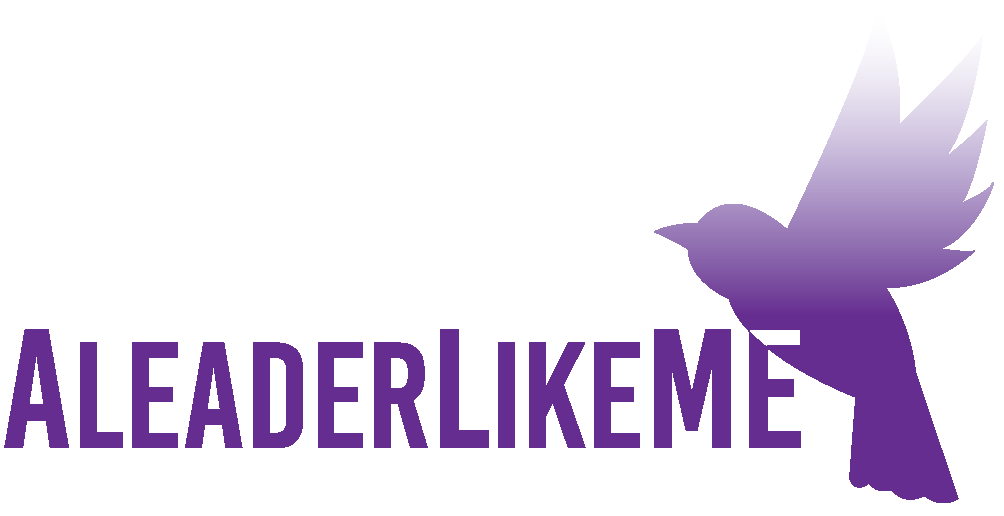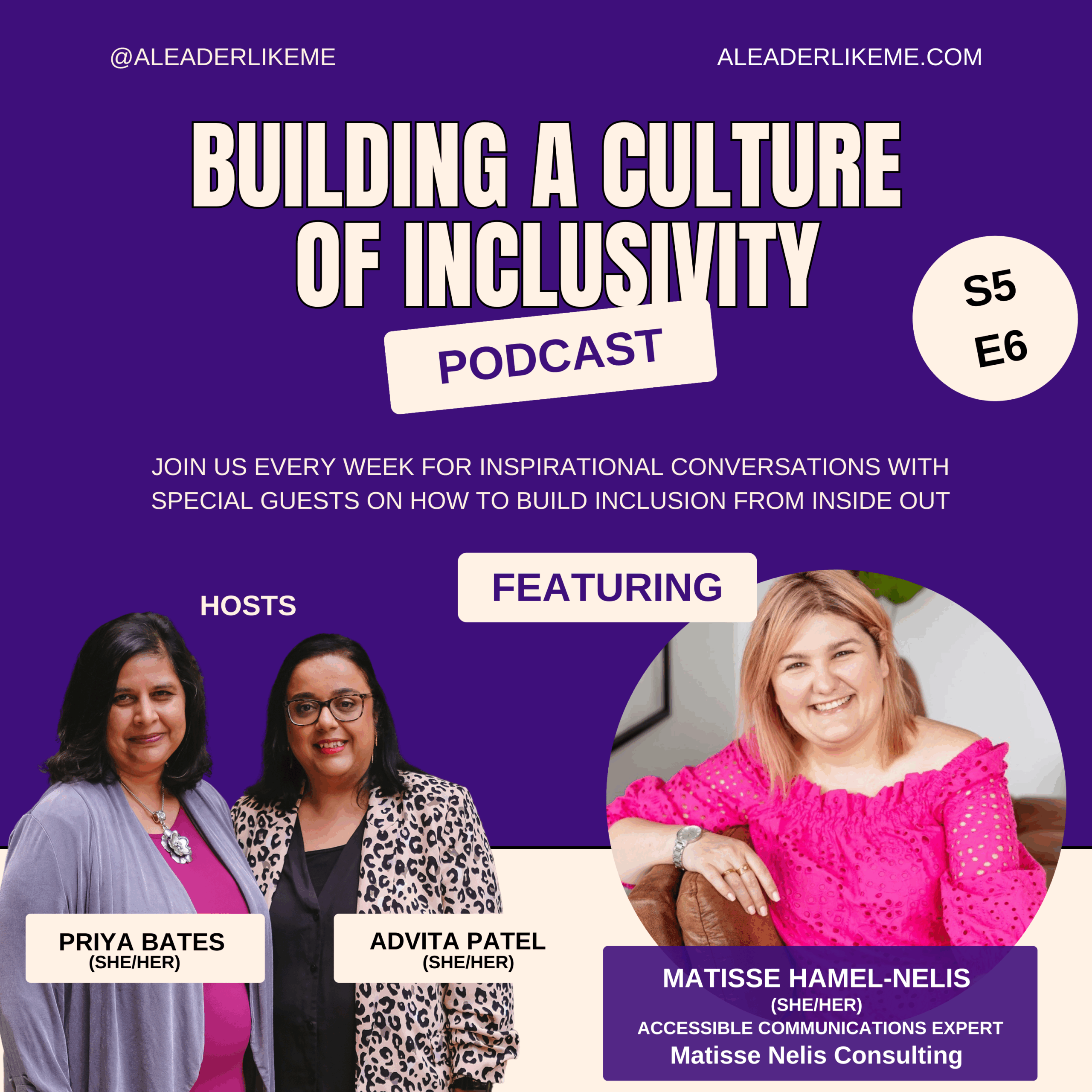In the latest episode of A Leader Like Me podcast, Priya Bates and Advita Patel have an enlightening conversation with two senior leaders from Sodexo – Katherine Power, Vice President of Communications, and Tony Tenicela, Chief Diversity Equity Inclusion Officer for North America. This episode dives into how to build an inclusive workplace culture and why diversity, equity, and inclusion (DEI) is crucial for both business growth and employee engagement.
If you’re interested in DEI strategies, inclusive leadership, or simply want to learn how major corporations like Sodexo are creating inclusive workplaces, this episode is a must-listen. Here are some of the top takeaways to help you implement effective DEI practices in your own organization.
1. DEI Must Be Integrated into Every Business Decision
Tony Tenicela’s key message was clear: Diversity, equity, and inclusion (DEI) needs to be embedded into every aspect of your organization. He explained that DEI shouldn’t be an afterthought or a separate initiative. Instead, it must be a core part of your business strategy, touching every department and every decision.
For businesses aiming to foster inclusive cultures, Tony suggests viewing DEI as a business driver—one that influences hiring practices, promotions, and even client relationships. By integrating DEI into your daily operations, you create a workplace where everyone feels valued, respected, and included.
2. Adapt DEI Approaches to Cultural Differences
Katherine Power shared her personal experience transitioning from working in Canada to the U.S., emphasizing the cultural differences in how DEI is approached. While Canadian workplaces focus more broadly on embracing all cultures, the U.S. tends to zero in on specific racial groups, particularly African American, Latino, and white communities.
This highlights a crucial point for businesses operating globally: customizing DEI initiatives for different cultural contexts is key. To succeed, businesses need to understand the unique challenges each region faces and tailor DEI efforts accordingly.
3. Diversity Drives Better Business Results
Both Tony and Katherine reinforced that diversity and inclusion are not just moral imperatives but also crucial for business success. Katherine shared data showing that gender-balanced leadership teams consistently outperform those that lack diversity. In fact, diverse teams lead to better employee performance, higher engagement, and improved financial results.
If you’re building a business case for DEI in your organization, this is critical: DEI isn’t just about doing the right thing—it’s also a proven strategy for improving overall business outcomes.
4. DEI is Global, But Local Action Matters
Sodexo operates in 54 countries, giving the company unique insights into how DEI needs to adapt to different regions. Katherine’s work with Indigenous communities in Canada shows that inclusion efforts must go beyond surface-level initiatives. Sodexo works closely with local communities, offering jobs and education while respecting cultural values and environmental sustainability.
This global DEI strategy serves as a reminder for businesses: while your DEI mission may be global, your actions need to be locally focused and community-driven.
5. Empathy is Essential for Inclusive Leadership
Tony discussed the shift towards empathetic leadership as a crucial element of successful DEI initiatives. In today’s evolving workplace, it’s not enough to simply manage people; leaders need to foster environments where employees feel comfortable bringing their whole selves to work.
Empathetic leadership builds trust, encourages collaboration, and leads to higher employee satisfaction, which is essential for any company looking to create a truly inclusive workplace.
6. DEI is Evolving—It’s Not Going Anywhere
There’s been talk about whether DEI is “dying,” but Tony put those rumors to rest. DEI isn’t disappearing—it’s evolving. Businesses are shifting from treating DEI as a separate initiative to embedding it fully into their operations. This shift ensures DEI becomes part of the organizational DNA, rather than a box to check.
For businesses looking to stay ahead, it’s important to recognize that DEI isn’t just a trend—it’s the future of business.
Final Thoughts: DEI is a Continuous Journey
The conversation with Katherine and Tony made one thing clear: Building a culture of inclusivity is not a one-time project—it’s an ongoing journey. Companies need to continuously adapt, learn, and improve their DEI practices to keep up with changing societal dynamics and workplace expectations.
Whether you’re starting your DEI journey or looking to improve your existing strategies, this episode of A Leader Like Me offers actionable insights and inspiration. It’s time to create workplaces where every employee feels valued, empowered, and included.
Don’t miss this insightful episode! Listen now to discover how Sodexo is leading the way in creating an inclusive workplace culture and learn how you can do the same.
Curated by Advita Patel with the support of ChatGPT




